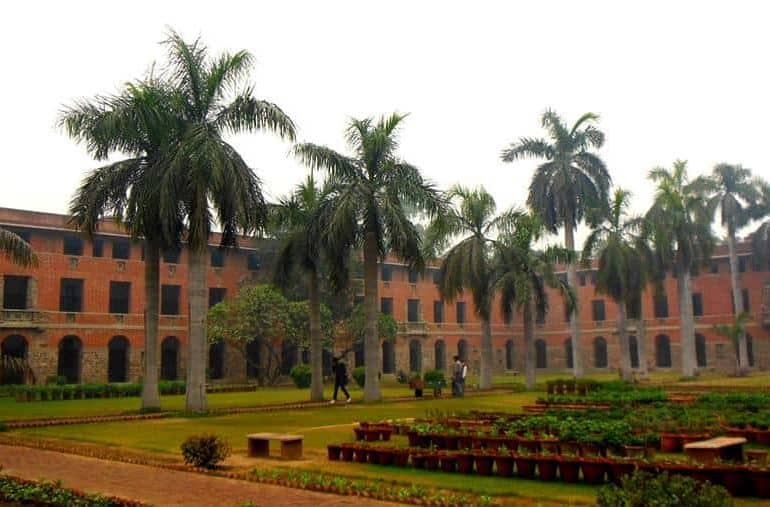With plastic becoming a major menace, here is an insight into how the students as well as the authorities of Miranda House have taken up several steps to make their campus a plastic-free space of the University.
Plastic is one of the most ubiquitous materials in the economy but with the increasing awareness about its ill-effects and negative impact on the environment and the spreading of the news of its complete ban by the government, several colleges and institutions have started substituting plastic with other options.
Miranda House has also taken many such initiatives to discourage the usage of single-use plastic.
The first step taken by students and societies was to conduct a plastic-free Fresher’s party to welcome the freshers to a ‘Green Miranda’. Vatavaran, the environmental cell of Miranda House, along with the Department of Geography encouraged the student councils of all the departments to conduct their Department Freshers without the usage of plastic in decoration and food. As a novel and creative initiative, the ‘Green Departments’ which successfully conducted a ‘plastic-free freshers’ were provided with certificates.
Aatreyee Tamuly, a student of B.A. (Hons) History, Miranda House said, “I think Miranda has taken the ‘No Plastic Campaign’ pretty well. It was great seeing all the departments taking part in the no plastic campaign during the Department fresher’s party.”
The usage of plastic in the canteen has been decreased as they have started providing steel plates and spoons instead of plastic plates for serving food. Providing straws has been stopped completely. Nescafe has substituted plastic cutlery with wooden cutlery and plates with paper bowls.
All along, the National Service Scheme (NSS) of Miranda House has conducted various events to discourage the usage of single-use plastic. One such event was a collection drive on the campus to collect all the plastic bottles and other plastic waste. The collected items were then handed over to the plastic recycling centre.
Another major step by the National Service Scheme (NSS) was to celebrate Onella, a Social Mela with the theme of ‘No Single-Use Plastic’. Several posters were circulated with the message of avoiding plastic usage. The regular Diwali Mela (Onella) was celebrated as a Social Mela this year to encourage secularism, raise funds and to promote the social cause of avoiding plastic usage. A REPLAFT competition was organized by the society on the eve of Onella in which the students were supposed to reuse plastic to make craft items. The decorative stuff made by reused plastic was sold at Onella. A signatory campaign to discourage the usage of single-use plastic also found its way into the celebrations. Another initiative by the society was to organize a ‘Plog Run’, which was plastic picking plus jogging.
Priyanshi Singh, a final year student of Miranda House expressed her views on the initiatives. She said, “I feel that the initiatives taken by authorities and students to avoid usage of plastic are really good, but I feel more could be done to it. For instance, plastic bottles are still being sold on the campus, as plastic cold drink bottles and water bottles are being sold and used. Instead, they could only sell glass bottles or cans. Selling some packaged items like chips can also be avoided, which could also lead to a healthy lifestyle. Whatever has been done to minimize it is good, but still some more steps like substituting aerated drink bottles with cans and glass bottles should be done.”
However, the initiatives taken by societies and authorities can only be successful if one takes steps on an individual level. The words of
“Never doubt that a small group of thoughtful, committed, citizens can change the world. Indeed, it is the only thing that ever has.”
Image Credits: shiksha.com
Priya Chauhan



